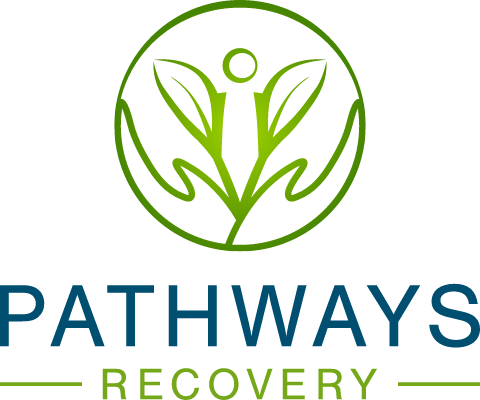Alcohol withdrawal can be extremely difficult and dangerous to endure, especially on your own. While quitting your alcohol addiction alone may seem like an effective means to start your road to recovery, instead, trying to treat your alcohol addiction all on your own can be deadly.
If you or someone you know is struggling with alcohol addiction, it’s essential they seek professional treatment to effectively break free of their addiction. At Pathways Recovery, we offer comprehensive, gender-specific care to treat your alcohol addiction in a safe and stable environment. We also have various addiction treatment programs in Northern California to provide support and resources to treat addictions from opiates, fentanyl, cocaine, and more. In this article, you’ll learn more about how alcohol affects the body, the symptoms of alcohol withdrawal, and the overall timeline for alcohol detox to expect.
Contact us today or call 1-916-735-8377 to learn more about how you can live a long-lasting life of sobriety.
How Does Alcohol Affect the Body?
Although alcohol is a substance that is consumed by millions of people, it’s still important to understand that it is a legal drug that significantly impacts the body. There are many short-term and long-term ways alcohol can affect the body.
Common short-term impacts of drinking excess alcohol include:
- Slurred speech
- Drowsiness
- Vomiting
- Headaches
- Impaired Judgment
- Decreased coordination
Meanwhile, the long-term health risks associated with excessive alcohol consumption include:
- High blood pressure
- Heart Disease
- Stroke
- Digestive Problems
- Cancer (i.e. mouth, throat, esophagus, voice box)
- Weakened Immune System
- Social Problems (i.e., family, friends, career-related)
- Alcohol Dependence
Therefore, the long-term health risks of consistent alcohol overconsumption can significantly damage your physical, mental, and social well-being. Inevitably the more and more you drink alcohol consistently heightens your risk of developing alcohol addiction.
Alcohol addiction can be debilitating to the body. This is because your body will constantly expect you to have either a higher concentration of alcohol or a higher quantity to achieve the desired effect of the last time you drank. This is why quitting alcohol, or a majority of other drugs is difficult because your body will experience withdrawal symptoms that make it difficult to stop using.
What Are the Symptoms of Alcohol Withdrawal?
Alcohol dependency and addiction will make your body crave the same amount or more of the drug to satisfy your body’s cravings. Therefore, your body experiences withdrawal symptoms as your body will be used to consuming high amounts of alcohol, frequently.
Symptoms of alcohol withdrawal can be extremely dangerous, and this explains why it’s essential to seek treatment to safely and effectively receive alcohol addiction treatment and detox in a safe environment.
Common alcohol withdrawal symptoms include:
- Anxiety
- Tremors
- Sweating
- Nausea
- Fever
- Mental Confusion
- Irritability
Depending on how heightened your alcohol dependency is will influence the severity of the withdrawal symptoms. The more severe the alcohol addiction, the more dangerous the withdrawal symptoms. That’s why it’s crucial to seek medical supervision when detoxing and seeking alcohol addiction treatment.
What is the Timeline for Alcohol Detox?
There is no exact timeline for alcohol detox. This is because every patient is different. Factors such as gender, age, the severity of alcohol use, and overall physical health can contribute to an addict’s alcohol detox timeline.
Here is a general alcohol detox timeline to expect:
First 12 Hours
Alcohol withdrawal symptoms tend to develop sometime within the first 12 hours since you last drank.
First 1-3 Days
Your alcohol withdrawal symptoms will be at their worst during this 1-3 day time frame, with two days since drinking being the peak of when you’ll likely experience the worst withdrawal symptoms.
Days 3-4
Individuals who suffer from DTs (delirium tremens), which consist of shaking and confusion, will occur 3 to 4 days since you last drank.
Days 4-5
By days 4 to 5, your withdrawal symptoms should start disappearing. For those who have a severe alcohol addiction, withdrawal symptoms can last more than one week.
The timeline for alcohol detox can be a rather lengthy process. It takes about an entire week since your last drink to overcome withdrawal symptoms.
How to Find Alcohol Detox Programs in Sacramento
It’s essential to seek treatment to safely recover from your alcohol addiction. Severe withdrawal symptoms can pose a serious threat to your health and well-being. That’s why seeking professional, medical supervision is a critical first step on your road to recovery.
Pathways Recovery offers various detox services, such as their medication-assisted addiction detox program to help addicts safely overcome their withdrawal symptoms to begin a long-term life of sobriety. Our holistic addiction approach helps patients not just overcome their addiction but also focus on healing their entire body and self to treat their mind, body, and spirit. If you or a loved one is suffering from addiction, contact us or call 1-916-735-8377 to learn more about how our addiction treatment programs can help you quit your addiction.


